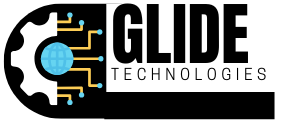Table of Contents
ToggleIn the bustling world of business, B2B SaaS companies are the unsung heroes, quietly revolutionizing how organizations operate. These software solutions are like the Swiss Army knives of the corporate realm—versatile, efficient, and always ready to tackle the next challenge. Whether it’s streamlining communication or automating tedious tasks, B2B SaaS has proven to be the secret sauce behind many successful enterprises.
Imagine a world where your team spends more time innovating and less time wrestling with clunky software. That’s the magic of B2B SaaS. With a subscription model that keeps the budget happy and features that evolve with your needs, these companies are not just selling software; they’re offering a lifeline to businesses that want to thrive in a competitive landscape. So, buckle up and get ready to explore how these digital wizards are changing the game.
Overview of B2B SaaS Companies
B2B SaaS companies offer software solutions that enhance operational efficiency for businesses. These companies deliver applications via cloud-based platforms, allowing easy access from various devices. Efficiency often improves as organizations incorporate these tools into their daily operations.
Many B2B SaaS products focus on automation, which reduces manual tasks and streamlines processes. By automating workflows, companies boost productivity and minimize human error. Collaborative features in these applications encourage better communication among teams, leading to enhanced project management.
Subscription models associated with B2B SaaS enable flexibility. Such models allow businesses to adjust their subscriptions according to changing requirements. Organizations can scale up or down, ensuring that resources remain aligned with specific business goals.
Cost-effectiveness characterizes many B2B SaaS solutions. Companies avoid hefty upfront expenditures related to traditional software installations. Rather, they pay for usage, which enhances budget management and financial planning.
In recent years, B2B SaaS companies have expanded their offerings to address diverse industries. Solutions are now tailored for various sectors, including healthcare, finance, and education. Business leaders often prioritize selecting software that aligns not only with their operational needs but also with industry standards.
Security and data privacy represent vital considerations in B2B SaaS. Providers invest heavily in the protection of sensitive information, using encryption and compliance protocols. Such investments ensure that organizations can trust these solutions for their business-critical operations.
Key Features of B2B SaaS Solutions
B2B SaaS solutions offer critical advantages that enhance business operations and adaptability. Functions like scalability and flexible pricing models play a significant role.
Scalability and Flexibility
Scalability enables businesses to grow without significant infrastructure changes. Companies can easily adjust their software use according to changes in demands. Flexibility accommodates fluctuations in workforce size or operational focus, ensuring optimization occurs at all times. Organizations often find that scaling up or down influences cost efficiency while maintaining performance. Moreover, many B2B SaaS providers allow businesses to customize features and integrations, ensuring solutions fit specific operational needs seamlessly.
Subscription-Based Pricing Models
Subscription-based pricing models present a cost-effective approach for businesses. Organizations pay only for the services and features they utilize, minimizing wastage. Predictable billing cycles create budgetary clarity, enabling financial planning. Furthermore, many SaaS companies offer tiered pricing, allowing businesses to select a plan that aligns with their current scope and growth potential. These models also facilitate upgrades as features evolve, ensuring continued access to cutting-edge innovations without prohibitive upfront costs.
Major Players in the B2B SaaS Market
The B2B SaaS market features an array of established leaders and emerging startups that shape its landscape. These companies provide innovative solutions that cater to various enterprise needs.
Established Leaders
Salesforce dominates the CRM sector, offering robust solutions that streamline customer management. Microsoft 365 excels in enhancing productivity through a suite of collaborative tools tailored for businesses. Meanwhile, Oracle provides comprehensive enterprise resource planning software that integrates multiple business functions. Adobe Creative Cloud stands out for creative teams, delivering powerful design tools accessible anywhere. Additionally, HubSpot specializes in marketing automation, helping companies improve leads and customer engagement effectively. These established players have set standards that drive innovation across the industry.
Emerging Startups
Numerous startups are making waves in the B2B SaaS space. Notion offers an all-in-one workspace for teams, promoting collaboration through customizable features. Airtable combines the simplicity of spreadsheets with the power of databases, allowing for flexible project management. Invoiced targets financial processes by automating billing and invoicing, thus saving time for businesses. Freshworks provides a range of customer engagement software that enhances user experience through integration. These startups introduce fresh perspectives and agile solutions, pushing the boundaries of what’s possible in the B2B SaaS market.
Benefits of Using B2B SaaS Companies
B2B SaaS companies provide numerous advantages that enhance operational efficiency and support business growth.
Cost Efficiency
Cost efficiency emerges as a primary benefit of B2B SaaS solutions. Companies pay for services on a subscription basis, which correlates directly with their usage levels. This system prevents unnecessary expenses by allowing businesses to scale their services in line with demand. Accessing advanced software without upfront investment reduces financial risk. Furthermore, tiered pricing options enable organizations to choose plans that meet their specific needs, maintaining budgetary clarity. Utilizing these subscription models fosters a sensible allocation of resources and enhances overall financial health.
Enhanced Collaboration
Enhanced collaboration stands out as another significant advantage of B2B SaaS tools. Many platforms offer integrated communication features that facilitate real-time interactions among team members. Improved project management capabilities streamline workflows, ensuring tasks are completed efficiently. Employees can collaborate seamlessly, regardless of their locations, which supports remote work initiatives. Access to shared documents and project updates fosters a culture of teamwork and accountability. Users experience greater productivity through shared insights and parallel tasks, ultimately leading to improved outcomes for the organization.
Challenges Faced by B2B SaaS Companies
B2B SaaS companies encounter significant challenges that can impact their growth and operations. Addressing these challenges is crucial for long-term success.
Data Security Concerns
Data security poses critical concerns for B2B SaaS companies. Sensitive information such as customer data and financial records requires strict protection measures. Compromised security can lead to breaches, resulting in financial loss and reputational damage. Regulatory compliance with standards like GDPR or HIPAA is essential, as non-compliance could result in hefty fines. Therefore, providers must invest in advanced encryption technologies and robust security protocols. Maintaining transparency in data handling fosters trust with clients, enhancing customer relationships. Prioritizing security not only safeguards data but also strengthens the credibility of the business.
Integration Issues
Integration with existing systems presents significant challenges for B2B SaaS companies. Many organizations rely on legacy systems that may not seamlessly connect with modern SaaS solutions. Failing integration leads to disrupted workflows and hinders operational efficiency. Careful planning and execution are crucial to ensure compatibility and smooth data transfers. Custom APIs can mitigate these issues, allowing for tailored integrations that meet specific business needs. Moreover, collaboration between software vendors and clients facilitates better integration strategies. Addressing these challenges effectively enhances user experience and promotes higher adoption rates among teams.
B2B SaaS companies are revolutionizing how businesses operate by offering flexible and efficient software solutions. Their ability to enhance communication and automate tasks is invaluable in today’s fast-paced environment. As organizations continue to adapt to changing needs and market demands, the importance of these cloud-based tools will only grow.
With a focus on scalability and cost-effective subscription models, B2B SaaS providers empower companies to optimize their operations without significant upfront investments. As the landscape evolves, staying informed about emerging technologies and best practices will be crucial for businesses aiming to leverage these solutions effectively. Embracing B2B SaaS not only streamlines processes but also positions companies for long-term success in a competitive marketplace.



